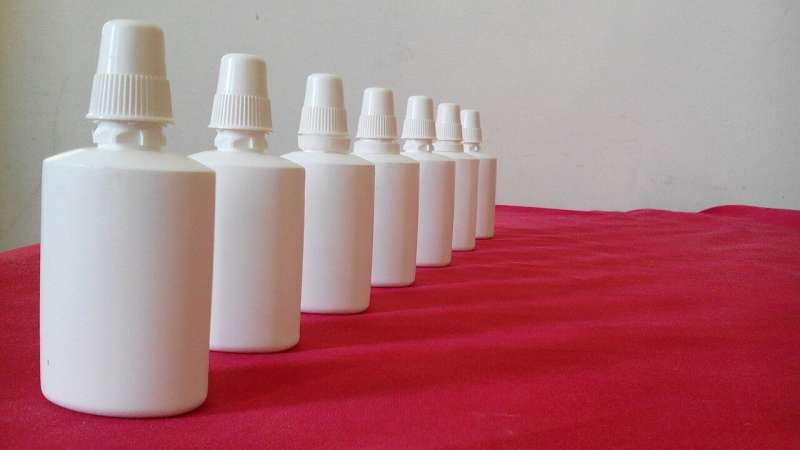New trial shows nasal spray reduces infection of COVID-causing virus by 62%

A new clinical trial led by Queen Mary University of London and Barts Health researchers has shown that the pHOXWELL nasal spray can reduce infection with SARS-CoV-2—the virus that causes COVID-19—by 62%. The research was published in the Journal of Clinical Virology.
The trial was carried out in India between April to July 2021. It involved 556 participants—275 used pHOXWELL and 281 used a placebo—three times a day. After 45 days, the researchers measured how many antibodies against COVID-19 each person in both groups had.
The team found that the nasal spray was safe and that after 45 days, 13.1% of those in the group that used it had antibodies against the COVID-19 virus, compared to 34.5% in the group who received the placebo. This shows that using pHOXWELL dramatically reduces the chances of developing COVID-19.
Researchers also found that people who used the nasal spray were less likely to experience symptoms than those given the placebo. No serious side effects were reported in either group and participants noted that the nasal spray was easy to use.
Professor Rakesh Uppal, Professor of Cardiovascular Surgery at Queen Mary University of London, Director of Barts Life Sciences said: “pHOXWELL presents a significant breakthrough in preventing people developing COVID-19. We now have an effective tool, previously missing, to fight this virus, and is designed to offer extra protection against COVID-19, in addition to vaccines, face masks and washing our hands.”
“I’m immensely proud of everyone involved in this trial and am extremely grateful to the participants who gave their time to be involved.”
The researchers’ aim is to soon begin producing and distributing the treatment in India initially. Following this, they will look to expand into other countries.
The treatment will be especially beneficial in parts of the world where uptake of the vaccine remains low and there is a shortage of personal protective equipment for those who require it. It comes as COVID-19 infection continues to cause a huge burden on global health and a significant strain on the world economy.
Source: Read Full Article
